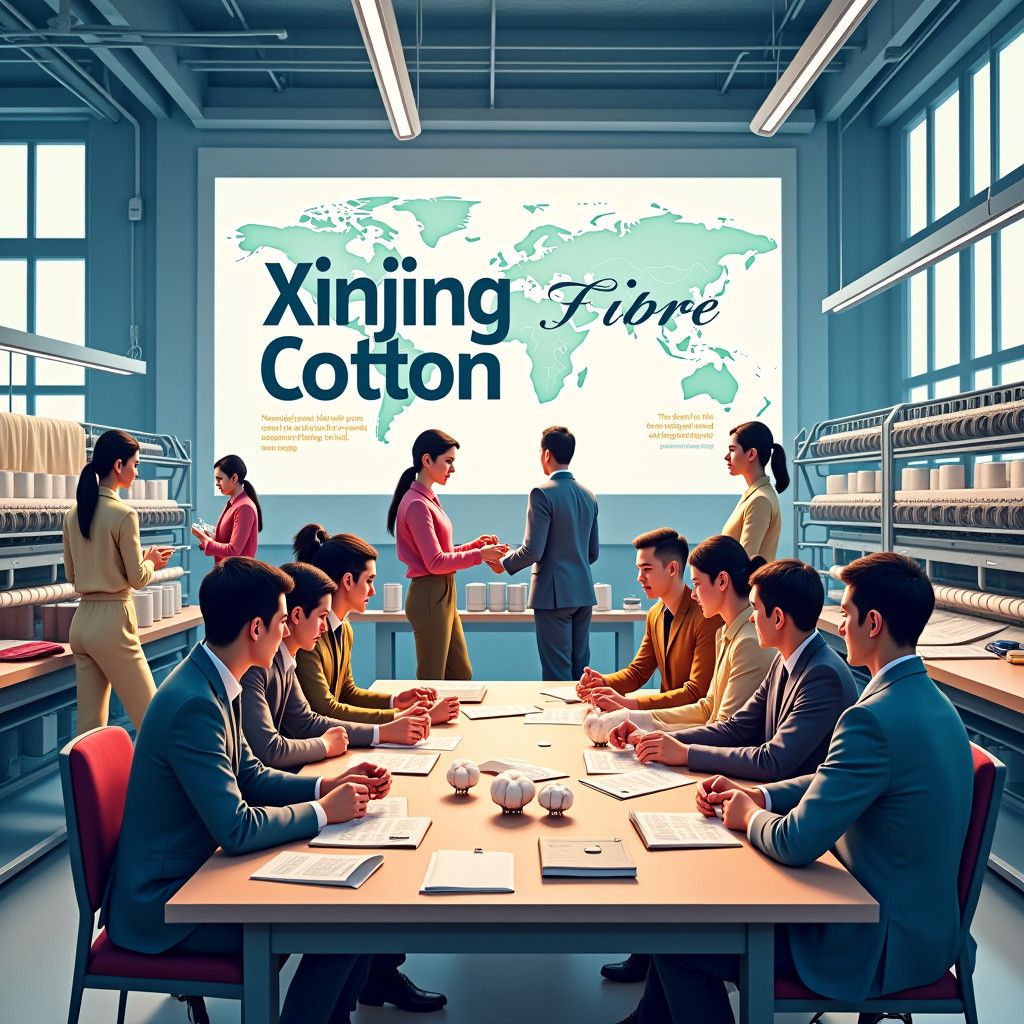In the complex web of global fashion and textile production, the sourcing of materials often carries significant political weight. Recently, the China Cotton Group voiced strong sentiments urging international brands, including Japan’s Uniqlo, to resume using cotton from Xinjiang, a region that has faced scrutiny over human rights concerns. This call comes in response to comments made by Tadashi Yanai, CEO of Uniqlo’s parent company, Fast Retailing Co., who stated that the brand does not source cotton from the controversial region.
Tensions escalated when Yanai’s remarks led to calls for boycotts of Uniqlo on Chinese social media platforms after a BBC interview where he highlighted the company’s sourcing decisions. This situation reflects the delicate balance international companies must navigate when operating in a market that is both lucrative and politically charged.
China’s cotton industry is predominantly centered in Xinjiang, which produces more than 90% of the country’s total cotton output. The region is also recognized as the world’s largest cotton producer. Consequently, calls from the Xinjiang Uighur Autonomous Region’s Cotton Association to treat Xinjiang cotton with respect and trust are not merely a plea but a reminder of the region’s critical role in the global textile supply chain. The association emphasizes that resuming the use of Xinjiang cotton is essential for the sustainable development of the global textile industry.
The implications of this situation are noteworthy. The United States has imposed restrictions on imports from Xinjiang due to allegations of forced labor in cotton production. These concerns, though disputed by China, have led to a broader international dialogue about ethical sourcing and corporate responsibility. Companies are increasingly scrutinizing their supply chains to ensure compliance with human rights standards, balancing ethical considerations against business imperatives.
H&M encountered backlash in 2021 when it decided to cease using Xinjiang cotton. The fallout demonstrated how quickly public sentiment can shift—and how companies can suffer reputational damage in today’s interconnected world. Similarly, PVH Corp., which owns major brands such as Tommy Hilfiger and Calvin Klein, is currently under investigation by China for its repudiation of Xinjiang cotton. The results of such investigations are uncertain, leaving companies to grapple with potential penalties and operational restrictions.
Fast Retailing, while not yet feeling the impact of consumer sentiment shifts, is attentively observing the situation. A spokesperson indicated that the company is monitoring demand closely as the implications of Yanai’s comments unfold. The fashion giant’s predicament underscores a broader concern for international brands: the need to maintain a positive image while navigating economic pressures and ethical dilemmas.
As the global textile market evolves, competition intensifies from neighboring countries like Bangladesh and Vietnam, which offer lower production costs. These external pressures complicate decisions around sourcing, leading many brands to re-evaluate their strategies regarding regions embroiled in controversies.
While the Xinjiang cotton debate continues to send ripples throughout the fashion industry, it opens a wider discussion on sustainability, labor practices, and ethical sourcing. Brands are faced with the challenge of ensuring transparency in their supply chains while aligning business interests with social responsibility. This balancing act will be crucial for companies wishing to thrive in a landscape increasingly influenced by consumer advocacy and regulatory scrutiny.
The strategic choices made by international brands will have profound implications not only for their operations but also for the future of the global textile industry. The ability to navigate these issues with foresight and integrity may ultimately define successful brands in the coming years, as consumers demand greater accountability from those who supply their apparel.
In conclusion, the call from the China Cotton Group serves as a reminder of the complexities that international brands must navigate. As consumer values evolve and the marketplace changes, companies must prioritize ethical sourcing alongside profitability to build sustainable futures. Uniqlo’s case is emblematic of larger trends, hinting at a pivotal moment for fashion brands worldwide as they tackle the intertwined issues of commerce, ethics, and global sustainability.












